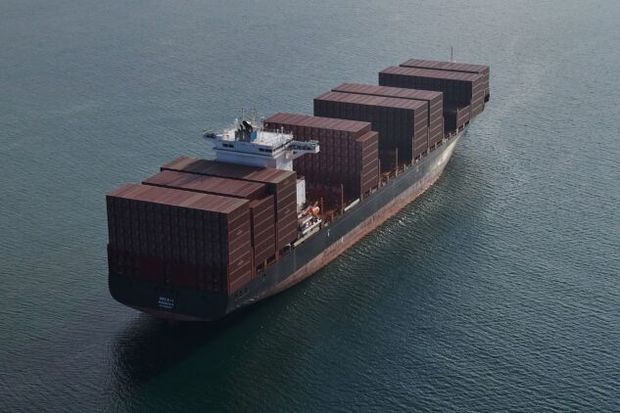Senators, in the face of pushback from the shipping industry, plan to introduce bipartisan legislation to help the Federal Maritime Commission crack down on unfair ocean carrier practices.
“These changes will increase the accessibility of the FMC to smaller shippers and provide the agency with clearer authority to intervene when unreasonable practices related to the movement of cargo are discovered,” Sen. John Thune (R-S.D.) told a Commerce Subcommittee on Surface Transportation, Maritime, Freight, and Ports hearing Tuesday.
Major U.S. ports have faced backups that have caused shortages and price increases as disruptions from the coronavirus pandemic have exacerbated challenges in the shipping industry. The bottlenecks have become a top concern for the Biden administration and lawmakers who have introduced a series of bills aimed at fixing the supply chain.
The House already plans this week to vote on a bill (H.R. 4996) to address shipping container problems and to help FMC enforcement. Thune said he and Sen. Amy Klobuchar (D-Minn.) will introduce a companion bill.
Ocean Shipping Bill to Aid Supply Chain Slated for House Vote

Photographer: Bing Guan/Bloomberg
A container ship moored off the Port of Long Beach in California on Nov. 16, 2021.
The bipartisan House bill altering ocean shipping regulations would be the first major update since 1998. It would prohibit ocean carriers from unreasonably turning down opportunities for U.S. exports, as decided by the FMC in a new rulemaking. Some shipping carriers have found it more lucrative to send empty containers back to Asia rather than use them for U.S. exports.
The bill has raised industry concerns. The government and policy response has sent “mixed messages,” said John Butler, CEO of the World Shipping Council, which represents shipping companies such as Hapag-Lloyd AG and A.P. Moller-Maersk A/S.
The administration is telling industry that they need to put empty containers on outbound ships in order to clear the ports, but the legislation would say they need to load all export boxes before they can load empties, Butler said. His group has warned that the bill would increase congestion and raise prices for businesses and consumers.
The House is scheduled to consider the legislation, which hasn’t been marked up in committee, under suspension of the rules — an expedited procedure usually reserved for noncontroversial bills — this week. A spokesperson for the World Shipping Council said that since the bill would make major changes to international ocean shipping practices, it should be the subject of further consideration before going to the floor.
“There is no legislative silver bullet on this, but it is possible to make the situation worse,” Butler said.
To contact the reporter on this story: Lillianna Byington in Washington at [email protected]
To contact the editors responsible for this story: Robin Meszoly at [email protected]; Heather Rothman at [email protected]; Sarah Babbage at [email protected]

